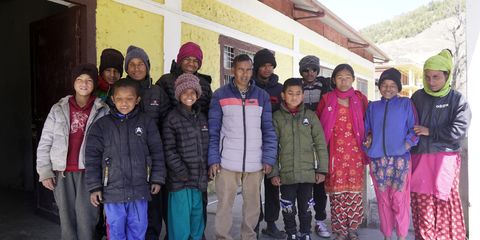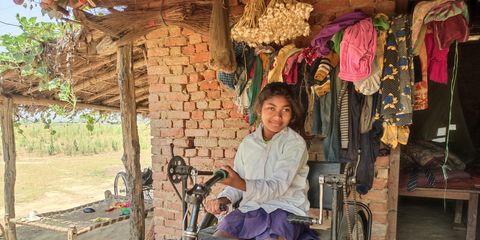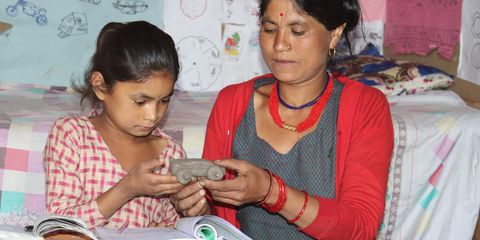The innovative students of Dolpa
Jivan, Lucky, and Srijana are students from Dolpa learning technology and innovation, using practical spaces and local resources to build useful products that solve problems.
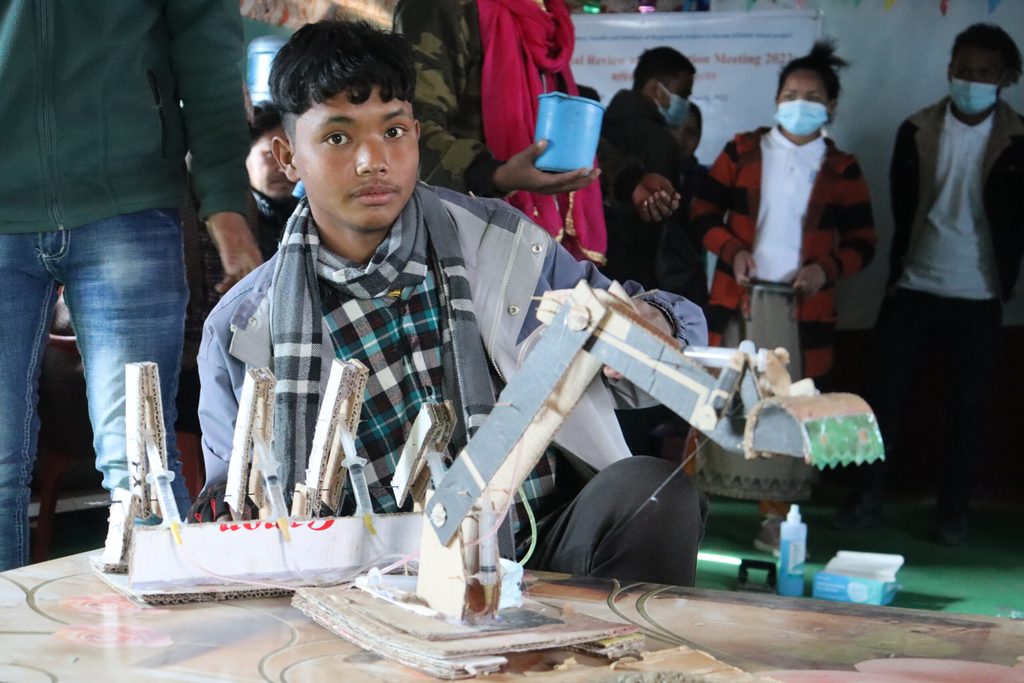
Igniting the spark of learning
Meet 15-year-old Jivan, a 10th-grade student from a marginalised community in a rural municipality of Dolpa, Nepal. Despite facing the challenges of an arduous four-hour journey to school through treacherous terrain, Jivan’s enthusiasm for education shines brightly.
Jivan’s father, a teacher, and his mother, a homemaker, support his education. His aspiration to become an engineer fuels his determination. What makes his educational journey even more exciting is the presence of a “maker space” at his school. Maker spaces are places where the students can put their theoretical learning into practice.
In Dolpa, where winter breaks last for 3 months and schools close for Yarsa Gumba (caterpillar fungus) harvesting season for 2 months, learning retention poses a significant challenge. Additionally, inadequate infrastructure and a lack of educational resources hinder students’ access to quality education.
However, Jivan’s life becomes easier because he stays in the school’s hostel. This eliminates the need for a long daily commute. The STEAM Ahead project in Dolpa, funded by the European Union, is at the forefront of reforming education policies, training teachers in STEAM (science, technology, engineering, arts, and mathematics) education, and establishing maker spaces.
The power of maker spaces
The STEAM Ahead project promotes STEAM education in 6 selected schools across Dolpa, offering training through a comprehensive resource manual. Online resources like text files and videos, accessible via the project’s website and YouTube, further enhance the learning experience.
The maker space, often referred to as a STEAM lab, serves as a hub for teachers and students to translate theoretical knowledge into practical applications using technology and an innovative learning environment.
“It has been more than 6 months since my school installed the maker space. Our teachers received training on STEAM education and they guided us on how we can effectively make use of the maker space,” said Jivan.
“Our teachers received training on STEAM education and they guided us on how we can effectively make use of the maker space.”
Jivan
Jivan and his friends have taken full advantage of this resource. They’ve designed and created various products using locally available materials. Their projects range from hydraulic-based excavators to windpower mills and local stoves.
Despite their enthusiasm and creativity, students like Jivan sometimes face obstacles due to limited resources. In remote Dolpa, acquiring materials like small batteries and motor parts is a significant challenge.
Dev, the social mobiliser, highlights, “Students like Jivan and Lucky are facing barriers to completing their products because it’s difficult for schools in Dolpa to purchase materials like small batteries, motor parts, etc.”
Supporting emerging talent
Recognising Jivan’s talent and creativity, the school management team stepped in to provide the necessary materials, even though the process was challenging due to the district’s remote location. The school principal emphasises the importance of supporting students in their quest to create innovative prototypes.
Shyam Bahadur Rokaya, the chairperson of the District Coordination Committee, Dolpa, applauds the students’ practical learning approach. He understands the need for hands-on experiences to equip students with skills that can improve their lives.
Jivan and Lucky, as leaders of the STEAM group, inspire their peers at school. This project has benefited 1,100 students, a significant number being girls. Jivan’s father has also been inspired, recognising the value of STEAM education, thanks to his son’s experiences.
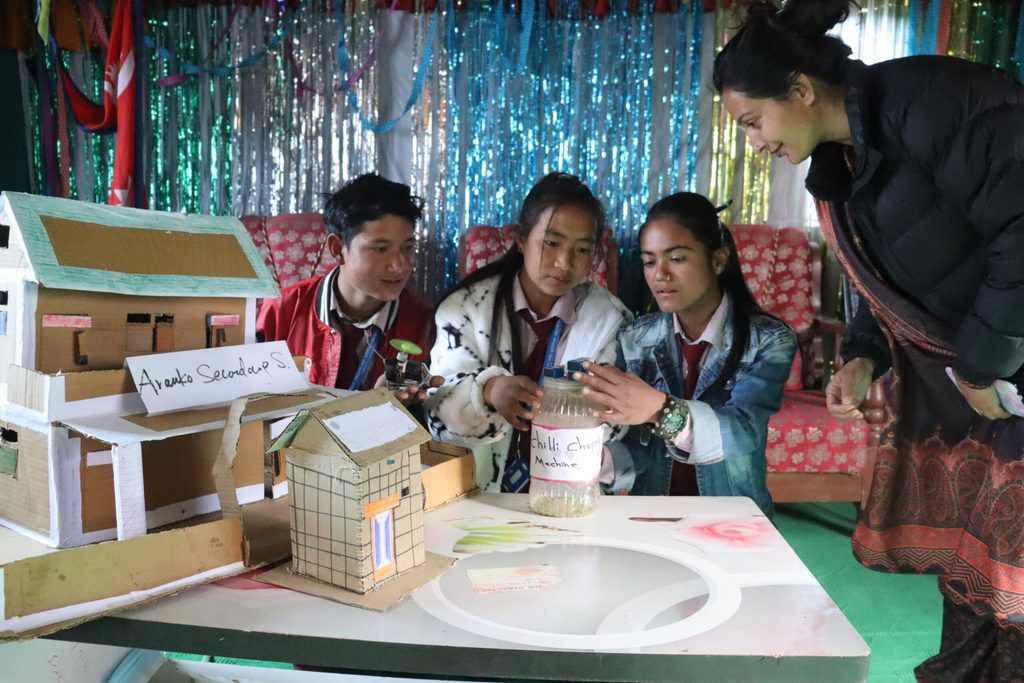
Determination beyond boundaries
Srijana, a 16-year-old aspiring computer engineer, showcases unwavering determination. Her commitment led her to travel 114 kilometers alone from Salyan to Dolpa to attend a technical secondary school. She rarely returns home, as her school offers tuition classes even during vacations.
Tilak, a focal teacher for STEAM education, points out that the project has brought about transformative changes in the school. Both students and teachers have been trained in gender-related issues and are enjoying practical learning experiences through the maker space.
Srijana and her peers have created innovative products like a chili chopping machine prototype, which could significantly benefit the local community. Such practical learning experiences foster a meaningful and memorable educational journey.
Bednidhi Adhikari, Chief District Officer of Dolpa, applauds the promotion of STEAM education in public schools and underscores the importance of such initiatives in enhancing students’ practical skills.
Plan International Nepal and its partner, Social Awareness Centre Nepal, provide essential technical support to schools and municipalities in Dolpa, ensuring the sustainability of practical learning through the STEAM approach, funded by the European Union. They advocate for local governments to scale up these achievements, fostering a brighter future for Dolpa’s students.
Categories: Education
